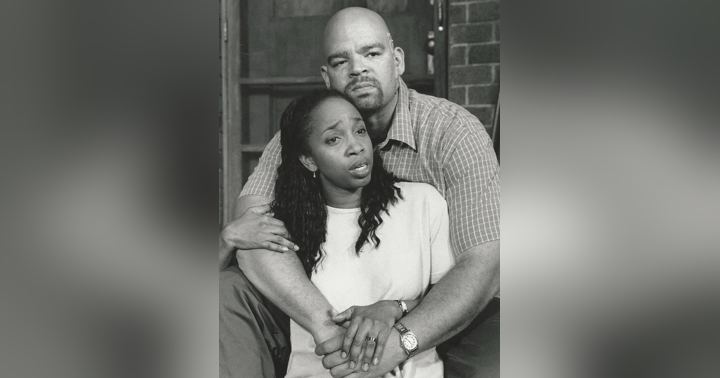
The dancer Maud Allan in her vaudeville performance of "The Vision of Salome" at London's Palace Theatre in 1908.
Allan (1873-1956), a Canadian, danced her interpretation of Salome at theaters worldwide - amazingly, she was actually performing topless, with only a beaded halter covering her breasts. This and other versions of the Salome story were quite sensational and well-attended, and her show was widely imitated. (It must have been good business for her, because she brought it to the Academy of Music in Philadelphia in February of 1910, and was still performing this dance as late as 1916, at the Broad Street Theatre.)
Of course, the popularity of this dance, like all the performances of Oscar Wilde's 1891 play Salome and Strauss' 1905 opera, only shows how much interest there was in transgressive depictions of Biblical and religious stories. For many years it has been the custom in many places that Biblical subjects could not even be shown on public stages - it was even explicitly against the law in the United Kingdom. The protests and efforts at suppression were a symptom that society's rules and interests were starting to change, and no efforts at censorship were really going to ever suppress what was going on.
In fact, due to the local controversy over the opera Salome in early 1909 that we document in this episode, a comedian named Fred Irwin was performing a drag version of it at the Gayety Theatre in Philadelphia - however, we can see that it was advertised as a tribute to Maud Allan's Salome, not Mary Garden's. As we note in the episode, it turned out that Mary Garden's interpretation was not actually sexy or risque at all, which is perhaps why he was paying ostensible tribute to Allan's version.
This was only one of many pop culture references to the Salome story of the time. One popular ditty of the day, which lampooned many biblical stories, likely had its origins in blackface minstrel shows. Entitled either "Darky's Sunday School" or "Old Folks, Young Folks," it had a verse that went:
Salome was a dancer and she danced before the king,
She wriggled, and she wobbled, and she shook most everything.
The king said to Salome "We will have no scandal here."
"The Hell we won't!" Salome said, and kicked the chandelier.
As we shall document in upcoming episodes, though indeed there were increasing efforts by authority figures and 'public decency' campaigns to suppress sexuality and religious skepticism in art and performance - both high and low - all this was a reaction to much larger cultural forces that would eventually overwhelm all efforts to hold them back.
Here is a photo, made by the Byron Studio of New York, of Oscar Hammerstein's lavish production of Salome, as it was first produced in New York at his Manhattan Opera House and later repeated in Philadelphia:
The Inquirer, in fact, was constant champion of Hammerstein throughout these years. Publisher James Elverson seemed particularly supportive of all efforts to develop North Broad Street into a new social and cultural center of the city. The success of Salome on its opening night at the Opera House was front page news, as far as he was concerned.
Selected Bibliography:
Books
Laufe, Abe, The Wicked Stage: A History of Theater Censorship and Harassment in the United States, Frederick Ungar Publishing Co., 1978, pp. 28-29.
Sheean, Vincent, Oscar Hammerstein I, The Life and Exploits of an Impresario (preface by Oscar Hammerstein II), Simon & Schuster, 1956.
Articles
"500 Pastors War on Salome," Pittston Gazette (PA), February 9, 1909.
"Brilliant Throng Greets Salome After Week of Battle," Philadelphia Inquirer, February 12, 1909, p. 1.
"Hammerstein Threatens to Withdraw Stars," Philadelphia Inquirer, January 1, 1909, p. 1.
McClung, Rob, "The Rise, Fall, and Revival of North Broad's Opera Palace," Hidden City Philadelphia (website), June 14, 2018. https://hiddencityphila.org/2018/06/the-rise-fall-revival-of-north-broads-opera-palace/
"Stop 'Salome' Cry to Mayor," Camden Morning Post (NJ), February 9, 1909, p. 8.
"Want Salome Prevented by Police Power," Philadelphia Inquirer, February 10, 1909, p. 1.
"Want 'Salome' Suppressed," New York Times, February 9, 1909, p. 2.











